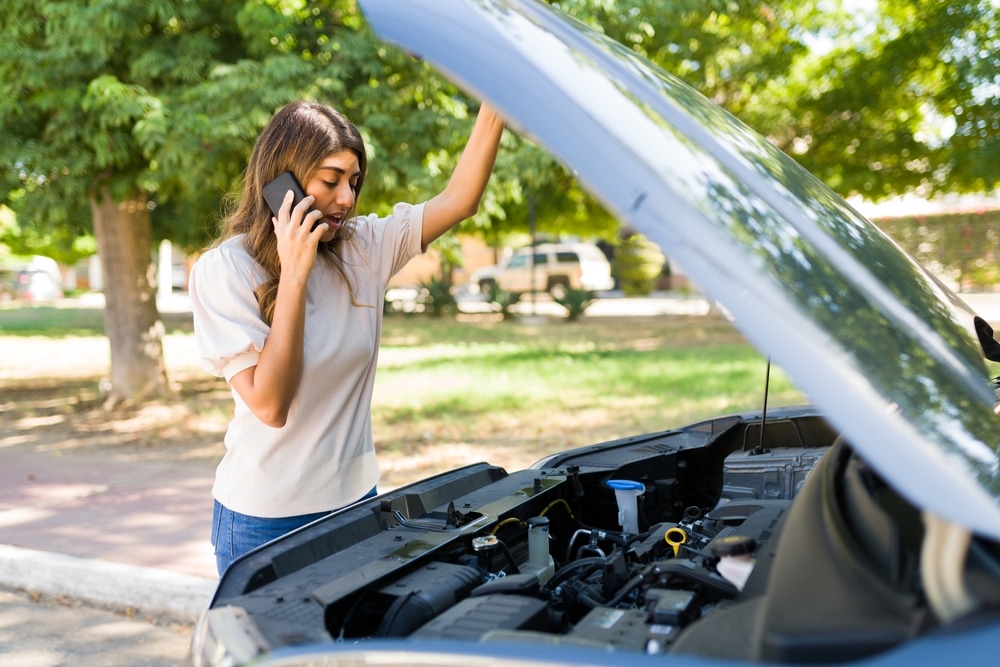Every car owner eventually faces common vehicle problems. These common car issues range from minor annoyances to serious mechanical failures. Understanding these frequent complaints helps you identify issues early. Prompt action saves money and ensures safer driving. Ignoring warning signs often leads to costly repairs and unexpected breakdowns. Let’s explore the most common car issues drivers encounter.
1. Engine Overheating
Engine overheating is a critical problem, especially in hot climates like Jodhpur. It indicates a serious issue within the cooling system. Ignoring an overheating engine can cause catastrophic damage.
Common causes include:
- Low Coolant Levels: Your engine lacks enough coolant. This often signals a leak.
- Faulty Radiator: The radiator might be clogged or damaged. It cannot dissipate heat effectively.
- Bad Water Pump: The water pump circulates coolant. A failing pump stops this flow.
- Thermostat Malfunction: A stuck thermostat prevents coolant from flowing.
- Leaky Hoses: Coolant escapes through cracked or loose hoses.
Always pull over immediately if your temperature gauge rises. Address overheating issues swiftly to prevent engine seizure.
2. Battery Problems and Starting Issues
A dead battery is one of the most frustrating car complaints. It leaves you stranded at the worst times. Battery issues often stem from simple neglect or age.
Look for these common problems:
- Corroded Terminals: White or blue powdery buildup on terminals impedes electrical flow.
- Old Battery: Batteries typically last 3-5 years. They lose their charge holding capacity over time.
- Parasitic Drain: Something in the car draws power even when the engine is off. This slowly drains the battery.
- Faulty Alternator: The alternator recharges your battery. A bad alternator prevents proper charging.
- Loose Connections: Terminals might be loose. This prevents current from flowing reliably.
Regular battery checks and cleaning prevent many starting issues. Test your battery’s health periodically, especially before long trips.
3. Brake Squealing, Grinding, or Sponginess
Your brakes are your primary safety system. Any issue with braking demands immediate attention. Strange noises or a different pedal feel are clear warning signs.
These brake problems often indicate:
- Worn Brake Pads: Squealing often means pads are low. Grinding indicates metal-on-metal contact.
- Warped Rotors: A pulsating or vibrating brake pedal suggests warped rotors. Heat causes this distortion.
- Low Brake Fluid: A spongy pedal can point to insufficient brake fluid. This might also indicate a leak.
- Air in Brake Lines: Air bubbles in the lines cause a soft, spongy feel.
- Stuck Calipers: A stuck caliper causes excessive wear on one side. It can also lead to pulling.
Never delay brake inspections. Address any brake symptom quickly for your safety.
4. Tire Issues: Uneven Wear, Low Pressure, and Punctures
Tires connect your car to the road. Their condition directly impacts safety, handling, and fuel efficiency. Neglecting tire maintenance leads to various problems.
Common tire-related complaints include:
- Uneven Tread Wear: This signals alignment problems or improper tire pressure.
- Frequent Low Pressure: A slow leak might exist. Check for punctures or valve stem issues.
- Vibrations While Driving: Unbalanced tires or alignment problems often cause vibrations.
- Bulges or Cracks: These indicate structural damage. They increase the risk of a blow-out.
- Rapid Wear: Aggressive driving or incorrect tire pressure shortens tire life significantly.
Regularly check tire pressure and tread depth. Rotate and balance your tires as recommended.
5. Warning Lights on the Dashboard
Your car’s dashboard lights communicate critical information. Ignoring them invites serious trouble. Each symbol warns you about a specific system issue.
Pay attention to:
- Check Engine Light: This is the most common warning. It indicates an issue in the engine or emissions system.
- Oil Pressure Light: This signals low oil pressure. Stop driving immediately to prevent engine damage.
- Brake Warning Light: This indicates a brake system problem. It might be low fluid or a system malfunction.
- Battery Light: This means your charging system has an issue. It often points to a bad alternator.
- Tire Pressure Monitoring System (TPMS) Light: It signals low tire pressure in one or more tires.
Consult your owner’s manual for specific light meanings. Seek professional diagnosis for any illuminated warning light.
6. Steering and Suspension Problems
Your car’s steering and suspension system affect ride comfort and control. Issues here lead to poor handling and increased wear. Rough roads and potholes contribute significantly to these problems.
Common complaints include:
- Car Pulling to One Side: This usually indicates a wheel alignment issue.
- Excessive Bouncing: Worn shock absorbers or struts cause a bouncy ride.
- Strange Noises Over Bumps: Clunks or squeaks often point to worn suspension components.
- Loose Steering: Excessive play in the steering wheel suggests worn steering parts.
- Uneven Ride Height: This could signal a broken spring or suspension component.
Address suspension issues to maintain vehicle control and prevent uneven tire wear.
7. Air Conditioning Not Cooling
Driving in hot climates without a functioning AC system is uncomfortable. A malfunctioning AC is a common complaint, especially during summer months.
Typical AC problems include:
- Blowing Warm Air: This often points to low refrigerant levels. A leak might be present.
- Weak Airflow: A clogged cabin air filter restricts air circulation.
- Strange Noises: Hissing or rattling noises can indicate compressor issues.
- Foul Odors: Mold or mildew in the system can cause unpleasant smells.
- Leaking Water: A clogged drain hose can cause water to pool inside.
Regular AC system checks and filter replacements keep you cool. They ensure comfortable drives.
Understanding these common car issues empowers you as a vehicle owner. Early detection and prompt attention prevent minor problems from escalating into major, costly repairs. Pay attention to your car’s sounds, smells, and warning signs. Regular maintenance remains your best defense against unexpected breakdowns. It ensures your vehicle stays reliable and safe on the road.



